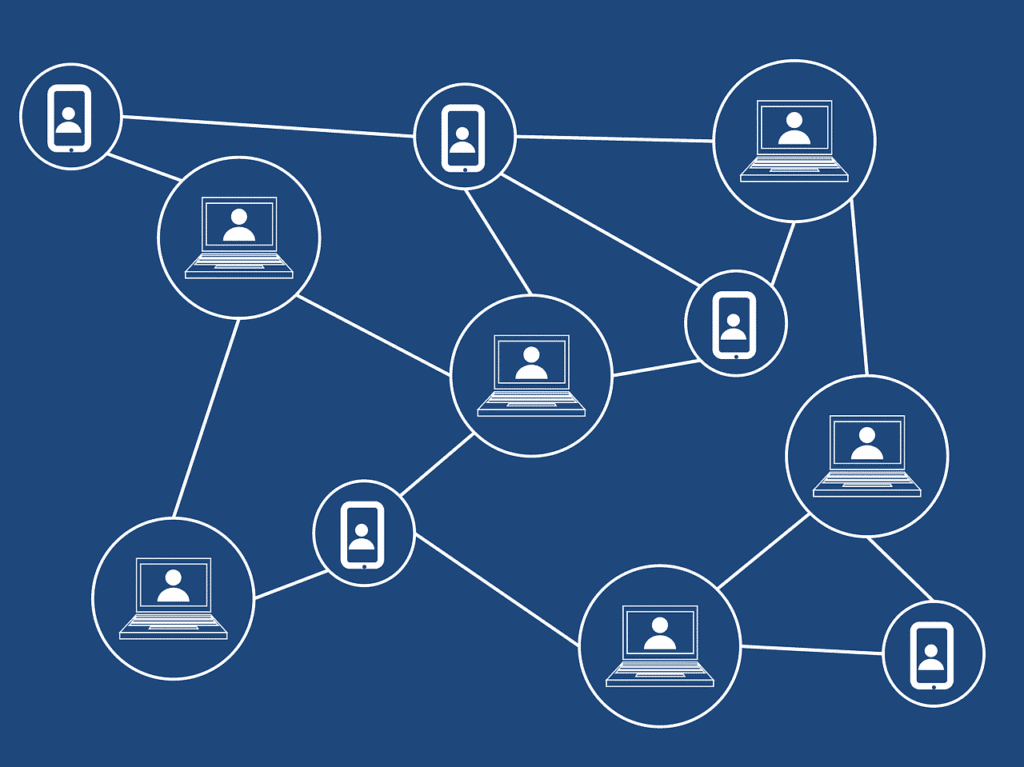The real estate industry is going through a significant digital transformation. Among the most promising technologies driving this change is blockchain. While the concept first gained popularity through cryptocurrencies like Bitcoin, its potential stretches far beyond digital coins. In particular, blockchain holds the potential to dramatically improve how Multiple Listing Services (MLS) operate, by making property transactions more secure, efficient, and transparent.
MLS platforms serve as centralized databases that connect buyers, sellers, and real estate agents. They host property listings, descriptions, photos, and transaction histories. However, traditional MLS systems have faced ongoing issues related to trust, fraud, delays, and lack of transparency. In the Arab world, where real estate continues to be one of the most vibrant economic sectors, integrating blockchain into MLS platforms could offer groundbreaking benefits.
This article explores the application of blockchain in MLS systems, how it works, the advantages it offers, the challenges to consider, and the potential impact in Arab markets.
Understanding Blockchain in Simple Terms
Blockchain is a type of digital ledger that records data in a secure and decentralized way. Each entry, or “block,” is connected to the previous one, forming a chain of blocks. This information is stored across multiple computers (nodes), which helps prevent tampering or unauthorized changes. Once data is added to the blockchain, it cannot be deleted or altered without agreement from the entire network.
What makes blockchain powerful is that it eliminates the need for a central authority. Instead of trusting a single party to maintain the accuracy of information, the system relies on consensus among many participants. This ensures that the data is consistent, transparent, and protected from manipulation.
The Current Limitations of MLS Platforms
While MLS systems are a vital part of real estate infrastructure, especially in developed markets, they suffer from several limitations.
First, data on MLS platforms can sometimes be inaccurate or outdated. Listings might not reflect the most current prices, or property details might be incomplete. In some cases, listings are duplicated or manipulated for marketing purposes. Buyers and renters may waste time on misleading or fake listings.
Second, transaction processes involving MLS systems tend to be slow and paper-heavy. When someone wants to buy or rent a property, there are multiple steps involving banks, notaries, government departments, and legal documents. These processes are time-consuming and prone to delays or errors.
Third, data privacy and security are a growing concern. Centralized databases can be vulnerable to cyberattacks. In some regions, buyers or sellers are concerned about their personal or financial information being misused.
Lastly, transparency remains an issue. Buyers don’t always have access to the full history of a property—such as its previous owners, renovation details, mortgage status, or price fluctuations over time. This lack of visibility can lead to poor decision-making.
Blockchain can help address these problems directly and effectively.
How Blockchain Enhances MLS Platforms

The integration of blockchain into MLS platforms transforms how property data is recorded, shared, and used during real estate transactions.
One of the most important features of blockchain is immutability. Once data is entered into the blockchain, it becomes part of a permanent record. This means that the property listing, including its description, ownership history, and price history, cannot be secretly altered or erased. Buyers and agents can trust that the information they see is accurate and up to date.
Another key function is the use of smart contracts. These are automated agreements that execute themselves once certain conditions are met. For example, if a buyer deposits a down payment, the smart contract can automatically update the ownership record, send receipts, and notify the relevant parties. This eliminates the need for third-party intermediaries like lawyers or brokers in many routine tasks.
Smart contracts reduce human error and fraud. Since the terms are programmed and transparent, neither party can make last-minute changes without consent. This is especially useful in commercial and cross-border real estate deals, which often involve complex paperwork and regulatory compliance.
Blockchain also allows for secure digital identities. Each buyer, seller, and property can be assigned a unique digital signature or ID. This makes it easier to verify identities, reducing the risk of scams involving fake sellers or agents. In a region like the Middle East where real estate investment from abroad is common, verifying ownership and legal status remotely is very important.
Perhaps one of the most exciting aspects is how blockchain can unify fragmented MLS systems. In many countries, MLS databases are managed regionally or privately, and they don’t always communicate with each other. Blockchain can create a shared network where all parties—government agencies, real estate agents, banks, and buyers—have access to the same verified data. This improves coordination and helps standardize processes across different markets.
Use Cases of Blockchain in Real Estate Listings
The application of blockchain in MLS platforms can take many forms depending on the type of property and the needs of the market.
For residential listings, blockchain can record verified details about the property such as square footage, number of rooms, year built, and ownership history. Virtual tours and photographs can be timestamped and stored on the blockchain to ensure they are accurate representations.
In commercial real estate, where leases and purchases involve larger sums and more legal complexity, smart contracts can manage lease terms, payment schedules, and renewals. This is particularly useful for shopping centers, office spaces, and warehouses in cities like Riyadh, Dubai, or Cairo, where international investors play a major role.
For off-plan and under-construction developments, blockchain can be used to track the progress of a project. Developers can update the status of construction milestones, permits, and inspections. This creates transparency for buyers and prevents project delays from being hidden or misreported.
In the short-term rental and hospitality sectors, property owners can use blockchain to prove licensing, compliance with local regulations, and guest ratings. This is helpful in tourist-heavy cities such as Marrakech, Sharm El-Sheikh, or Beirut, where vacation rentals are a growing business.
Benefits of Blockchain Integration in Arab Markets
In the Arab world, the real estate sector plays a significant role in economic development, urban growth, and foreign investment. Blockchain integration in MLS platforms can offer tailored benefits in this regional context.
First, it can build trust in rapidly growing property markets. In countries like Egypt, Saudi Arabia, and the UAE, new developments are being launched at an unprecedented pace. Blockchain makes it easier for buyers to verify property ownership, legal status, and construction updates.
Second, blockchain supports cross-border investments. Many property buyers in the Gulf region are from outside the country. They want to be sure they are dealing with legitimate sellers, and they want transaction processes to be smooth and compliant. Blockchain provides a way to handle documentation, payments, and ownership transfers digitally, securely, and efficiently.
Third, regulatory bodies in some Arab countries are actively encouraging digital transformation. For example, the Dubai Land Department has already begun exploring blockchain in property registration. These government-led initiatives set a strong foundation for private MLS platforms to adopt blockchain in their systems.
Fourth, the use of blockchain could help reduce corruption and inefficiency in property transactions. In some regions, property buyers have faced issues with bribes, lost paperwork, or conflicting ownership claims. Blockchain’s transparency and tamper-proof design help eliminate these risks.
Fifth, Arabic-language blockchain platforms can help standardize real estate terminology and contract formats across countries that share the Arabic language. This would support regional cooperation and make it easier for Gulf-based investors to explore opportunities in North Africa or the Levant.
Technical and Legal Challenges
Despite the clear benefits, there are some challenges to consider before blockchain can be fully adopted in MLS platforms.
One challenge is the cost and complexity of implementing blockchain systems. Real estate platforms may need to upgrade their infrastructure, hire new developers, and train their staff to understand how the system works. Smaller agencies or regional platforms might struggle to afford these upgrades.
Legal uncertainty is another concern. Not all countries in the Arab region have updated their laws to recognize blockchain-based contracts or digital identities as legally binding. Without legal recognition, some of blockchain’s most powerful features—such as smart contracts and digital ownership—cannot be enforced in court.
User adoption is also a barrier. Many property buyers and agents are used to traditional methods, such as signing paper contracts and meeting face to face. It may take time to educate people and build confidence in new systems.
Finally, data privacy must be carefully managed. While blockchain is secure, storing personal or financial data on a shared ledger requires strict controls. Governments and platform operators must ensure that users’ private information is not exposed or misused.
The Future of MLS with Blockchain
Looking ahead, blockchain is likely to play a major role in shaping the next generation of real estate platforms. As legal frameworks mature and technology becomes more affordable, we can expect to see greater adoption across the Arab world.
MLS platforms may evolve into fully digital ecosystems that handle everything from property search and price negotiation to contract signing and payment processing. Blockchain can make this possible by connecting all the pieces in a secure and reliable way.
We may also see new business models emerge. For example, fractional property ownership—where multiple people invest in a single property and share the returns—can be managed through blockchain. Each owner’s share can be recorded and traded as a digital token, making real estate more accessible to a wider population.
Government agencies may also begin integrating blockchain into land registries and urban planning systems. This would allow real-time updates to property records and greater coordination with developers, infrastructure planners, and utility providers.
Finally, blockchain could support green real estate practices by tracking the sustainability features of a property—such as energy use, certifications, or carbon impact—and recording them permanently for buyers to see.
Conclusion
Blockchain is not just a buzzword; it’s a transformative technology with real-world applications in real estate. For MLS platforms in the Arab world, it offers a clear path to greater transparency, trust, and efficiency. By recording property data in an immutable ledger, automating contracts, and protecting against fraud, blockchain can significantly improve how properties are listed, marketed, and sold.
The journey to full adoption may take time, and there are legal, technical, and cultural challenges to overcome. But as governments and private platforms invest in digital innovation, blockchain is expected to become a core part of the MLS landscape across the Middle East and North Africa.
By embracing this technology now, Arab real estate markets can position themselves as global leaders in secure, digital property transactions for years to come.













